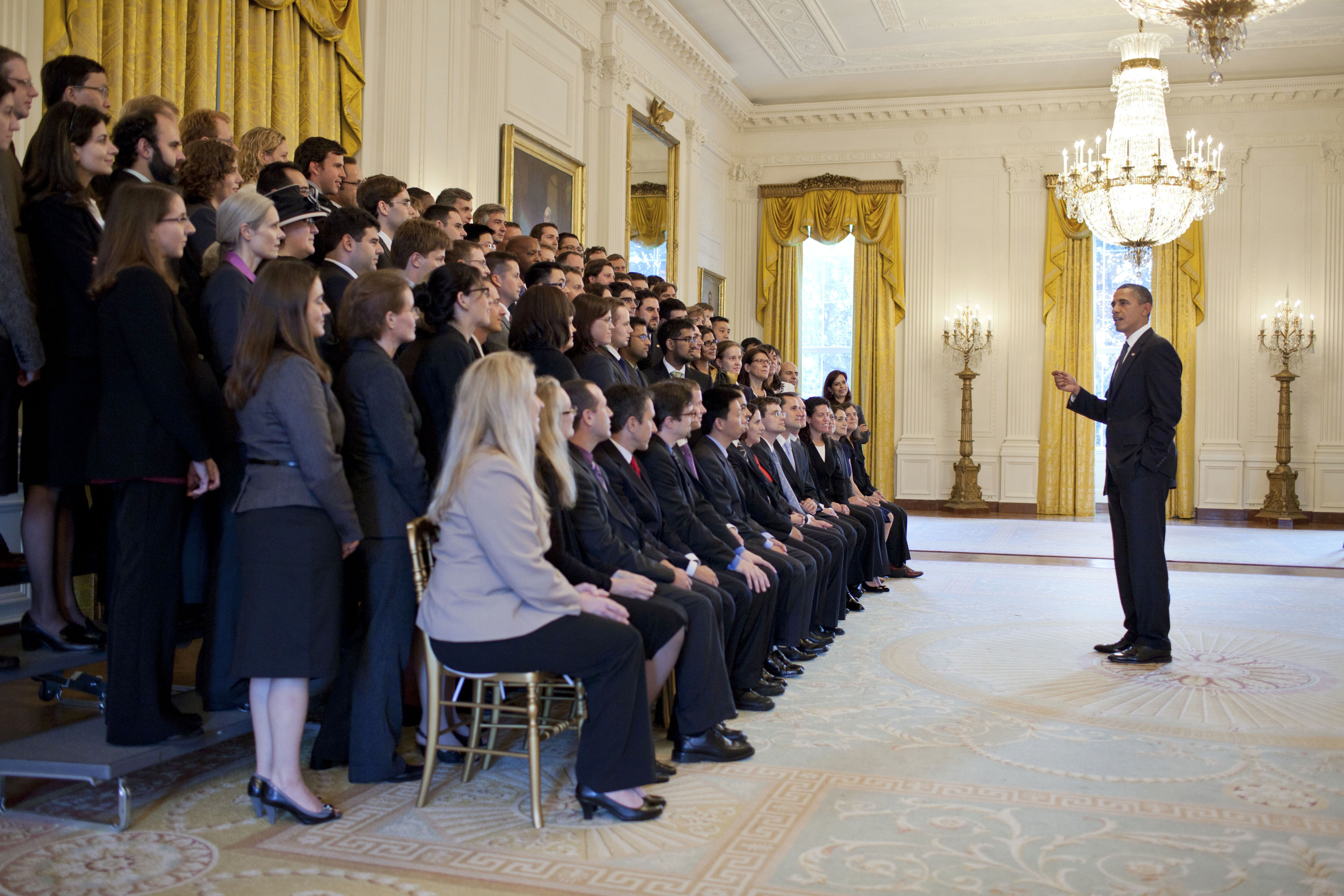
For over half a century, solar astronomers around the world have been baffled by two questions: Why is the sun’s outer atmosphere hotter than the surface of the sun itself, and what causes solar winds? In 2018, NASA will launch its first mission to the sun, using cutting-edge technology designed to shed light on these mysteries at last.
Riding with one of the groundbreaking instruments for that mission will be the hopes and dreams of Justin Kasper, a young astrophysicist who helped develop the mission’s solar wind analyzer and who on Friday proved himself a stellar scientist in a second sense of the word by being one of 94 scientists and engineers to receive a Presidential Early Career Award for Scientists and Engineers (PECASE).
PECASE awards are bestowed each year upon outstanding scientists and engineers who are beginning their independent research careers, show exceptional potential for leadership, and have demonstrated a commitment to community service and the advancement of science, technology, engineering and math education.
This year’s PECASE recipients represent extraordinary examples of American creativity across a diverse span of disciplines while demonstrating the immense potential of ongoing Federal investments in health care, manufacturing, global development, and other fields.
Take for example Pierre Comizzoli of the Smithsonian Institution, who has been investigating innovative processes relating to fertility—including methods for isolating and drying the DNA of egg cells, which is a less expensive and easier alternative to freezing and preserving the entire egg. His work, funded by the National Institutes of Health (NIH), could someday be used not only to extend human fertility but also to save endangered species.
Or consider PECASE winner Nicola J. Camp, a professor at the University of Utah, who is focused on two forms of blood cancer—chronic lymphocytic leukemia and multiple myeloma—as well as breast cancer. Her research, also supported by NIH, looks at how genetic changes within generations of families may lead to an increased risk of cancer.
PECASE winner David J. Brumley, an assistant professor in Electrical and Computer Engineering at Carnegie Mellon, works with the Department of Defense to identify computer systems security flaws and to anticipate cyber security problems before they occur.
And Rommie Amaro, of the University of California at Irvine, has developed new computational methods that, when applied to studies of cell-surface proteins, is expected to speed development of pharmaceuticals for influenza, chlamydia, and other diseases that today take their tolls on the planet's most underprivileged people.
After receiving their awards in a ceremony with agency officials, friends, and relatives—a ceremony keynoted by OSTP Director John Holdren—the ambitious researchers were greeted by President Obama in the White House. With this much progress at this early stage of their careers, we can expect even greater things from these leading lights in the years to come.


